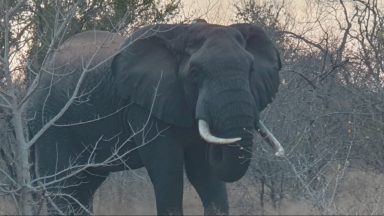Peace Parks Foundation is deeply involved in rewilding efforts across various national parks and transboundary landscapes throughout southern Africa. ‘Rewilding Africa’ involves relocating wildlife to restore populations, improving infrastructure, and fostering sustainable conservation to create resilient ecosystems in protected areas.
In collaboration with Mozambique’s National Administration for Conservation Areas (ANAC), Peace Parks has been actively contributing to the restoration and rewilding of Maputo National Park for a decade. The park is located in one of the most biologically diverse and endangered ecoregions on Earth. But just over a decade ago, the ecosystem was severely threatened. Through intensive restoration and protection activities and the support of committed partners and funders, the park’s animal – and prey – population has grown to over 12,000. Rewilding efforts have reintroduced nearly 5,000 animals, including previously locally extinct species.
“As part of the reintroduction of species,” says Maputo National Park’s veteran warden Miguel Goncalves, “we felt that now is the right time to bring in carnivores, top predators.” Far from being a box-ticking exercise, this is a finely-tuned, step-by-step process, and determined by the ‘functionality’ of each species – their precise roles and interactions in space and over time.
Building on already strong relationships with Sabie Game Park and the Mozambique Wildlife Alliance, Miguel’s team undertook the bold attempt to capture spotted hyena from Sabie Game Park to be transported and released into Maputo National Park.
Often misunderstood as lowly, repellent scavengers picking off carcasses, their scavenging abilities for feeding on dead animals is in fact crucial to regulating healthy ecosystems which they perform by being resistant to microorganisms that could cause diseases in other wildlife. What’s more, in Sabie Game Park they have become top-tier predators. With their numbers growing there significantly as a result, the timing of this relocation of a clan of hyenas to Maputo National Park was mutually beneficial to both parks, ensuring ecosystem balance for each of them
According to the lead field veterinarian on the project from the Mozambique Wildlife Alliance, Dr Hugo Perreira, hyenas are one of the smartest species he has ever worked with. “They’re intelligent,” he says. “They are very hard to capture, so this exercise will be very challenging for us.”
Visit parquemaputo.gov.mz to learn more about Maputo National Park, and stay tuned to PeaceParks.TV to follow this exciting hyena relocation. In our next episode, we join the team on the exciting first step of this rewilding journey: attempting to capture a clan of clever hyenas.

